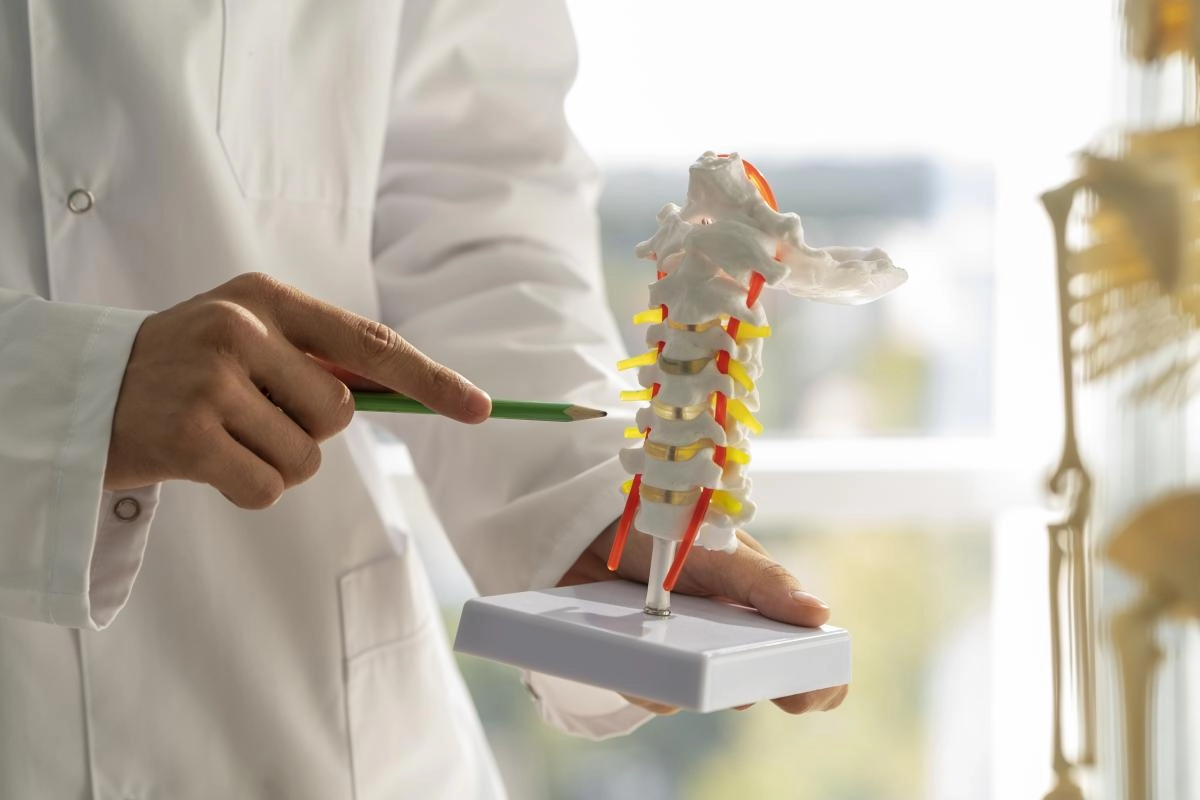4 reasons to treat intervertebral hernia conservatively

Photo source: freepik
A neurologist named 4 reasons why you can try conservative treatment of intervertebral hernia before surgery.
A herniated disc causes many problems: pain and limited mobility are far from a complete list of all the troubles. Some patients are deeply convinced that only surgery can help, but official medicine in most cases is for conservative treatment. Neurologist of the Federal Network of TEMED Clinics Almira Salakhutdinova listed 4 main factors in favor of the decision to refuse surgery.
"In some cases, surgical intervention is unavoidable. The decision to perform the operation is made by the doctor, after weighing all the pros and cons. It is worth noting that performing the operation does not always guarantee the expected result and is often associated with risks," the specialist explains.
An intervertebral hernia occurs as a result of degenerative changes in the spine. When the fibrous ring of the disc ruptures, its contents protrude, pinching the nerve roots, causing inflammation and swelling in the surrounding tissues. This is what causes pain and the need to take a forced position.
Why is it better to give preference to conservative treatment?
Reason #1. Recommendations of the Russian Ministry of Health
The Clinical Recommendations of the Russian Ministry of Health state that degenerative diseases of the spine without acute progressive neurotic deficit should be treated conservatively.
This is due to the fact that surgery not only does not eliminate the causes of the pathologies themselves, but can also cause complications. In each individual case, the doctor weighs all the positive and negative aspects, and makes a decision based on them and in-depth studies.
The reason for surgical intervention may be weakness in the limbs, a change in the position of the damaged vertebra relative to others, progressive spondylolisthesis. In other situations, it is recommended to do without surgery.
Reason #2. A large number of relapses
Surgery does not guarantee a 100% result. Moreover, after the operation, there is a high probability that the disease will return again. After all, the surgeon does not remove the causes of the hernia, and if the patient continues to lead a normal lifestyle, then the adjacent disc suffers, and the patient gets into a vicious circle. Conservative treatment works in a complex manner: medications, physiotherapy, and exercise therapy are used. This helps to form a new lifestyle - a healthy one, excluding damaging effects on the spine.
Reason #3. Postoperative complications
During the operation, the integrity of the tissues is violated. The close location of nerve fibers carries very specific risks. Any imprecise movement - and the damage can be irreversible. Infection, loss of sensitivity in the limbs, and the formation of hematomas in soft tissues are possible. There is a risk of loss of motor activity of the arms and legs, loss of control over the work of the pelvic organs, which leads to urinary and fecal incontinence.
Reason #4. High efficiency of conservative treatment
The human body is a "smart" system that has a unique ability - regeneration. If you use this function correctly, you can achieve serious positive results. By stimulating the resorption of the hernia with the help of acupuncture, the use of a robotic multi-wave laser and regenerative injection therapy, it is quite possible to achieve tissue restoration in a natural way. Damaged areas of the disc heal, while its functions are preserved. Yes, it will take some time, but the result is worth it.
Among the conservative methods of treating intervertebral hernia are:
- Modulated resorption is a conservative treatment that is based on the body's ability to independently reduce and eliminate such intervertebral disc pathologies as protrusion and hernia.
- Traction therapy increases the distance between the vertebrae and reduces the load on the affected disc.
- Exercise therapy helps to achieve spinal traction, strengthen its muscular frame and improve blood supply.
! The final method of treatment is chosen only by the attending physician.
Prevention and consolidation of the obtained result play an important role in the treatment of intervertebral hernias. In order to prevent the development of relapses, it is very important to minimize the negative impact on the spine. The support of a physical therapist is simply necessary here. He will not only create an effective training plan, but also help to adjust your lifestyle so that it does not become a risk factor for the health of the spine.
Strict adherence to the doctor's recommendations and changing your usual lifestyle for the better will allow you to stay healthy longer.